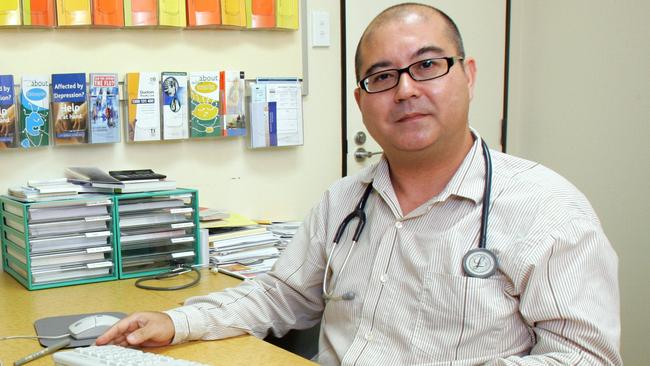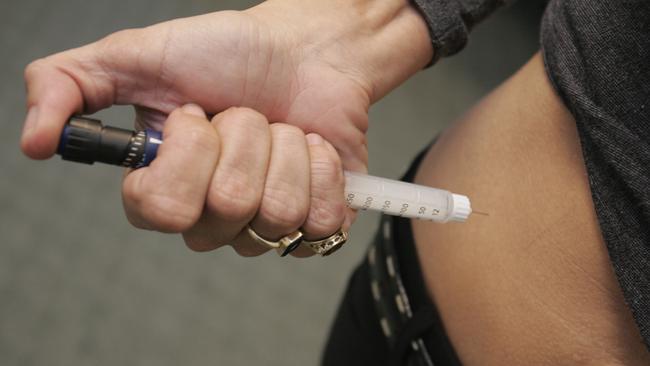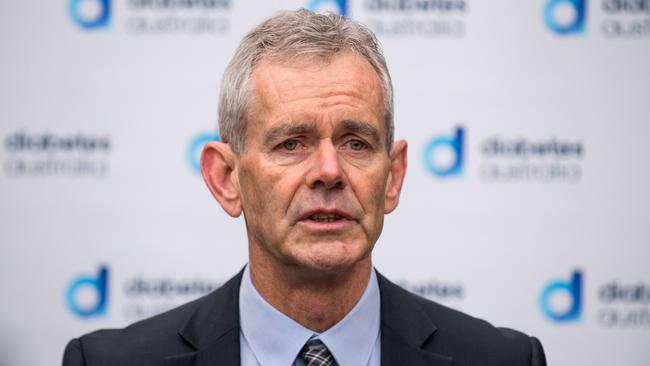Surprising complication is frontrunner in ‘diabetes epidemic’
New research has revealed a surprising frontrunner has emerged as the most common complication for people living with diabetes.

Mental health challenges have emerged as the most prevalent and least recognised complication of diabetes, according to recent data from Diabetes Australia.
The research reveals nearly half of the 1.5 million Australians living with diabetes experience mental health challenges every year.
Of the almost 700,000 diabetics struggling with their mental wellbeing, more than 400,000 reported having difficulty accessing mental health services.
Diabetes Australia chief executive Justine Cain said the staggering figures showed there was an urgent need to address the diabetes mental health epidemic.

“That’s a lot of people who aren’t getting the help and support they need,” she said.
“Diabetes mental health challenges are widespread, but they are rarely discussed as part of routine diabetes care. They really are a silent diabetes complication.”
The latest data from Diabetes Australia shows more than 73 per cent of people living with diabetes have been criticised for having the condition.
“More than 1.1 million Australians report being blamed or shamed for living with diabetes and more than 360,000 say this impacts their ability to live well with the condition,” Ms Cain said.
“Nobody chooses diabetes and nobody should be blamed or shamed for living with it.”
Ms Cain urged Australians to call out the diabetes stigma, which had contributed to a rising number of diabetics experiencing mental health issues.

Diabetic Sebastian Harris said there was enough to worry about without the added stress of people’s preconceptions.
The 19-year-old and his younger brother were both diagnosed with type 1 diabetes, and he said the condition had taken a physical and mental toll.
“I sometimes feel that no matter what I do, my diabetes can be extremely hard to control,” he said.
“It makes me question whether I am managing it well. I know in the long run it will be fine but, in that moment, it’s hard not to feel defeated.”
Mr Harris said the constant management of his condition could be overwhelming, leading to diabetes distress and burnout.
“You want to switch off and forget about it, but you can’t do that with diabetes. There’s no holiday from it,” he said.
“The consequences if you do try to ignore it can be life-threatening.”

The teenager emphasised the importance of spreading awareness about the enormous impact diabetes could have on a person’s mental and physical wellbeing.
From a medical point of view, Dr Gary Deed said doctors should be taking steps to be more aware of the holistic impact of diabetes.
As a diabetic who focused on providing healthcare to other people living with the condition, he suggested healthcare professionals undertake specialist training to better understand the reality of diabetes.
“Living with diabetes can be complex and unrelenting,” he said.
“That daily management, on top of the worry about long-term diabetes-related complications, can become a real burden.”
While there was no quick fix for the worrying number of diabetics experiencing mental health challenges, Ms Cain said incorporating mental health support into diabetes treatment plans would significantly improve outcomes.

“We want people to know that diabetes mental health challenges are real and encourage people with diabetes and their healthcare professionals to explore options for mental health care,” Ms Cain said.
To address the issue, Diabetes Australia is launching a new Let’s Rethink Diabetes campaign as part of National Diabetes Week, which runs from July 10 to 16.
The campaign aims to challenge both community attitudes and the way the Australian health system delivers mental health support to people living with diabetes.
Currently, the Australian health system spends nearly $2.5bn on treating all types of diabetes.
The eye-watering figure doesn’t take into account the money spent on related health conditions or mental health challenges.
Ms Cain opined the money would be better spent by allocating the funds to early prevention of type 2 diabetes and reducing the risk of diabetes complications.

Research shows the number of diabetics in Australia has increased dramatically, with 120,000 people diagnosed in the year up to November 2021.
“Diabetes is one of the most significant challenges currently facing Australia’s health system,” said former Diabetes Australia chief executive Greg Johnson.
He declared the country was facing a “growing diabetes epidemic” which required a strong and comprehensive response.


